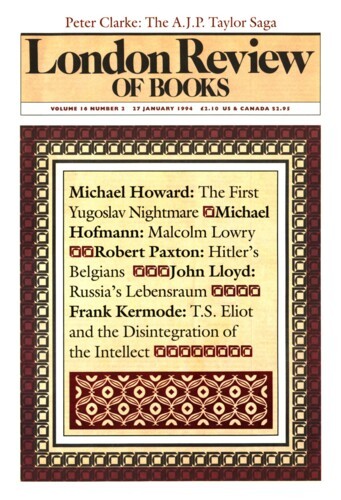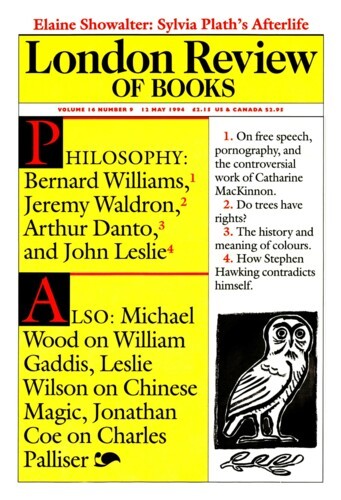Shop Talk
John Lennard, 27 January 1994
The reviewers’ quotes which, fifteen years I ago, Macmillan chose for the reprint of Kenneth Hudson’s The Jargon of the Professions were a moral lot. Auberon Waugh, writing for what should now be called Books and Bookpersons, declared that ‘Mr Hudson writes with the elegance, precision and wit of a Fowler … a delight to read and a mine of useful instruction’, while Peter Clayton, in the sterner fashion befitting the Sunday Telegraph, thought that ‘it’s not often you get a hook so worthy of purpose, so forthright, so amusing and yet so balanced.’ The reviewer for the Scotsman, traditionally anonymous, was given pride of place: ‘If we all listened to Hudson,’ he said, ‘we would think and write a little better. Some of us might even say what we meant, and be understood.’ What a happy day that would be, here and in Laputa, but if Hudson’s book is still in print it is not readily to be found, at least in Heffers, and the volume of peevish complaint about the proliferation of jargon and the multilateral economies in the area of SALT (the Strategic Acronym Limitation Talks) has shown no tendency to downturn. If anything, it has shown more clearly than ever an applied nimbyfication: I am exact; you have rather a fondness for using several long words when one poor monosyllable would do adequately; and he (sic) networks technobabble.…


